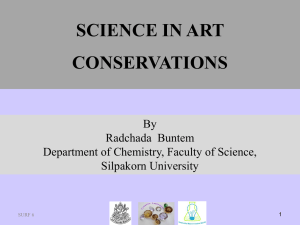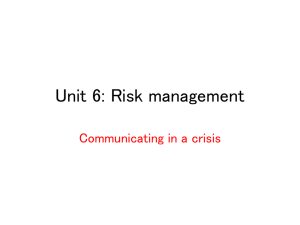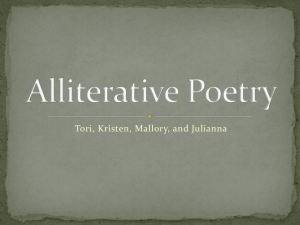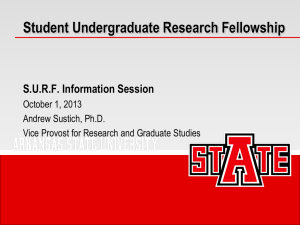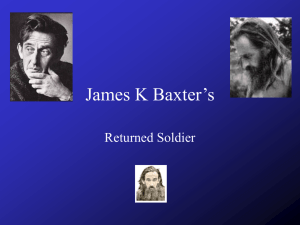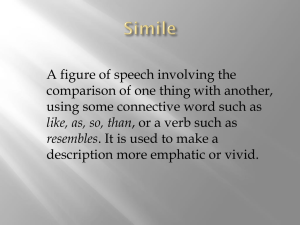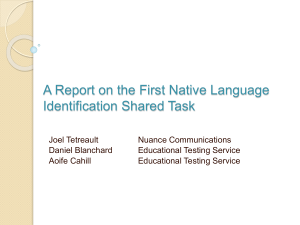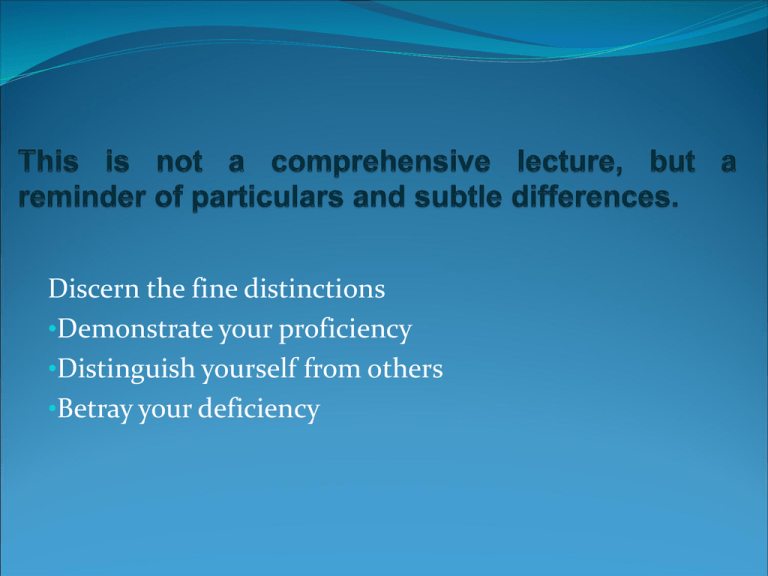
Discern the fine distinctions
•Demonstrate your proficiency
•Distinguish yourself from others
•Betray your deficiency
Language Proficiency
Grammatically correct
Idiomatically sound
Aesthetically elegant
Language Proficiency
The first stage of mastering a foreign language is to
develop a working vocabulary (diction) and master the
ability to organize it in grammatically correct
sentences.
The second stage, is to be able to use elements
language in ways that are neither correct in diction
and/or grammar, but conveys meaning “idiomatically.”
Finally, the third stage is to use correct and idiomatic
language in aesthetically pleasing ways.
Test (25 points)
Error corrections (5 points)
Translation (10 points)
A short essay on Life (10 points)
Grammatically correct
Luggages are not allowed to be left here. NI
Luggage is not allowed to be left here.
(集体名词【有的能计数,有的不能】 个体名词)
Poetry
poem
Machinery
machine
Luggage
trunk, bag, etc.
Police
policeman
Committee
member
Foliage
leaf
Equipment
tool
Clothing
garment
Knowledge-a knowledge of English
a slight knowledge of Shanghai
abstract meanings like the quality of a person:
Less of a fool=less foolish
As much of a fool as=as foolish as
Too much of a fool=too foolish
Man, coward, coquette, politician, sportsman, scholar, poet
He was enough of a man to tell the truth.
He was not man enough to admit his mistakes in public.
She had to appear in the court to give evidence. NI
She had to appear in court to give evidence.
(有冠词,定/不定,表示该名词所表示的处所,零冠
词,该处所的功能)
bed, church, college, court, hospital, market, office,
prison, sea, school, table
the boy is old enough for school.
they were at table when we called.
It is a city on the sea.(=at the seaside)
He wanted very much to go to sea.(=be a sailor)
Notice the difference
I am annoyed with him.
I was annoyed by mosquitoes all night.
I am surprised at your behavior.
I was surprised by a knock at the door.
Replace the underlined parts by phrasal verbs.
The train was delayed by fog and arrived late. Held up
You mustn’t omit the difficult questions. Leave out
Chinese students of English often confuse the words ‘lie’ and
‘lay.’ Mix up
The chairman brought his speech to an end by thanking the staff
for their hard work. Wound up
I used to believe his tall stories; now he rarely succeeds in
deceiving me. Taking me in
I will admit my mistakes. Own up to
My nephew often utters the cleverest remarks. Comes out with
When his father died, Jim inherited a fortune. Came into
If you refuse to execute my orders, you’ll be dismissed. Carry out
He recovered consciousness when the doctor had applied artificial
respiration. Came to
If I don’t punish you this time, will you promise never to do it
again? Let you off
They are quarrelling and reconciling by turns. making up
She is not really that way. She is just pretending. Putting on
I finally understood what she was talking about. Caught on to
Some new problems appeared at the last minute. Cropped up
Modal verb
You will wait outside the gate.
You will report to me afterwards.
Will: indicates a kind of obligation.
Usually used along with “you”, as an intensified imperative
sentence.
There’s someone coming upstairs.
That will be Lisa.
Will: speculation
A lion will attack a man only when hungry.
Before his retirement he would catch the early bus every
morning.
A speculation based on customary actions.
Oil will float on water.
Pigs will eat anything.
A speculation based on objective judgment.
You shall stay with us as long as you like.
= I’m willing to let you stay with us as long as you like.
He shall be praised if he works hard for the people.
= I’ll see that he is praised if he works hard for the people.
Shall: indicate the will of the speaker
You ‵shall obey my orders.
= I insist that you obey my orders.
They ‵shall do what I told them to.
= I’m determined to make them do it.
Shall (stress): indicate the strong will and determination of
the speaker
You ‵shan’t get away with it.
= I will never allow you to get away with it.
Foreign countries ‵shall not interfere in our internal affairs.
Shall not (stress): indicate the prohibition and the threat
from the speaker
His parents are deadly against the trip. NI
His parents are dead against the trip.
She stopped dead. (突然地,完全地)
The wind was dead against us. (完全地,直接地)
Deadly pale (死人似的苍白)
Deadly serious (极端严重)
fair/fairly
play fair
hit him fair on the nose
fair and square
firm/firmly
stand firm
hold firm to your beliefs
high/highly
Clear
You can see clear to the mountains today.
(完全地,径直地)
Sand clear of the gates! (隔开,不接触)
close
He was following close behind. (近)
aim high 力争上游
hold one’s head high 昂首
play high 大赌
search high and low 到处搜寻
fly high 有雄心
a historical high 历史新高
sharp/sharply
ten o’clock sharp
turn sharp right
look sharp 赶快,留神,注意
You’re always being late.
You’re not staying here any longer.
= I won’t allow you to stay here any longer.
进行时表将来 含情态意义。
I’m not sitting on that hard seat.
= I won’t sit on that hard seat.
It is the first time that I speak in public.
It is the first time that I have spoken in public.
It is/was/will be the first time + (that) have done
It was the first time + had done
This, this evening, yesterday. Second tenth. Month
year.
Almost every professor and student at the university approve of the
choice of Dr. Brown as the new president. UG
Almost every professor and student at the university approves of the
choice of Dr. Brown as the new president.
It is a message of importance for every man and woman who votes.
Each penny, nickel, dime, and quarter are counted carefully by the
bank teller. UG
Each penny, nickel, dime, and quarter is counted carefully by the bank
teller.
She used to come each day but now she only comes once a week. UG
She used to come every day but now she only comes once a week.
No boy and no girl is admitted.
It has been seven years since I first entered the university.
It is seven years since I first entered the university.
The house has been in bad repair since he lived in it.
= The house has been in bad repair since he moved out.
I haven’t eaten snails since I was a student at Indiana.
= I haven’t eaten snails since I left Indiana.
Lived持续性动词was静态动词
Since分句中用持续性动词和静态动词的一般过去式,通常
表示动作或状态的完成或结束。
The house has been in bad repair since he has lived in it.
I haven’t eaten snails since I have been a student at
Indiana.
The quiet little room is become to me perfectly. NI
The quiet little room becomes me perfectly.
一些静态动词没有被动语态。
This plane holds about 500 people.
The graduates lacked working experience.
She resembles her sister in character.
He’s gone.
The moon is risen now.
They are finished.
相当于完成体结构
He has gone.
The moon has risen now.
They have finished.
Tomatoes can be bruised easily.
Tomatoes bruise easily.
主动代被动
主语指物居多,通常具有某些内在特征,是动作得以/难
以实现。
The belt won’t buckle.
My voice doesn’t carry well.
Damp wood will not fire. (Ame: Damp wood will not burn.)
The flat lets for 600 dollars a month.
Ripe apples pick easily.
This paper tears easily.
The material won’t wear.
Meanings change when turned into passive voice
There was nothing to see.
= There was nothing for one to see.
There was nothing to be seen.
= The thing being looked for was not there.
His novels don’t sell.
His novels are not sold.
She does not photograph well.
She has not been photographed well.
Subjunctive mood
Heaven forbid!
So be it.
Suffice it to say that…
He will remain here if need be.
Home is home, be it ever so homely.
He’s my best friend, my second self, as it were.
= so to speak
Notice the presence of “to”
I’d rather not have eggs and bacon for breakfast.
I would just as soon stay as go.
He would sooner play than work.
He would rather listen to others than talk himself.
Rather than cause trouble, he left.
The manager believes it is important to invest in new
machinery rather than to increase wages.
The infinitive “to” or the preposition “to”
Keeping what belongs to another amounts to stealing.
She confessed to (having) a dread of spiders.
He’s stopped taking drugs now, but he may revert to
taking them again.
She took to being out frequently in the evening.
He swore to having paid for the goods. (强调地说)
It’s hard to reconcile oneself to never being sick a long time.NI: delete “never”
He applied himself to learning English.
He is resigned to losing the competition.
He was reduced to begging for food.
After a long delay, he got round to writing the letter.
His suggestions went very near to resolving our dilemma.
That is tantamount to saying that you do not agree.
Whatever you my say, she is deaf to reasoning.
I’m writing with a view to finding out whether you have any news about my son.
He bought the old house with an eye to making it a hotel.
A drunk man is one who has drunk too much alcohol and has got
drunk. UG
A drunken man is one who has drunk too much alcohol and has
gotten drunk.
A ship that has been sunk is a sunk ship. UG
A ship that has been sunk is a sunken ship.
原形
-ed分词
形容词作名词修饰语
形容词作补语
Bind
bound
bounden
bound
Drink
drunk
drunken
drunk
Light
lit
lighted
lit
Melt
melted
molten
melted
Rot
rotted
rotten
rotten
Shave
shaved
shaven
shaved
Shrink shrunk
shrunken
shrunk
Sink
sunk
sunken
sunk
A bounden duty is a duty one is bound to do.
(“bounden” NI)
A lighted candle is one that has been lit.
Wood that has rotted is rotten wood.
Molten steel is steel that has been melted.
Shrunken clothes are clothes that have shrunk in the
wash.
A clean-shaven man is one who has been shaved clean.
A ship that has been sunk is a sunken ship.
Idiomatically Sound
The night is still early yet. NI
The night is still young.
In the still/dead of the night
Have an early night 早点睡觉 NI
At the crack of dawn
Some children are afraid of the darkness. NI
Some children are afraid of the dark.
The room is in (the) dark. NI
The room is in darkness.
At first sight/hand/glance “hand” NI
Rank first
(the) first thing need “the”
His determined profession was medicine. NI
His chosen profession was medicine.
A very determined woman
They are not so willing as us to have this picture hung
in the corridor. UG
They are not so willing as we to have this picture hung
in the corridor. NI
They are not so willing as we are willing to have this
picture hung in the corridor. NI
They are not so willing as we are to have this picture
hung in the corridor.
Such a man as he is welcome. NI
A man like him is welcome/Such a man is welcome.
Let us begin from this chapter. NI
Let us begin with this chapter.
We started with soup and end up with ice cream.
it could be “ended up”
The English alphabet begins with “A” and ends with
“Z.”
Exception: begin from the beginning
Irrigation and drainage are two of the most common
ways of exploiting wasteland. NI
Irrigation and drainage are two of the most common
ways of reclaiming wasteland.
Exploit water power/natural resources
Reclaim (开垦荒地)marshland/desert/an area from
the sea
The acquirement of knowledge, his literary
acquirements, (spiritually)
The acquisition of property, his mental acquisitions
(physically and spiritually)
Your services are an acquirement to the staff UG
Your services are an acquisition to the staff NI
The young assistant is an acquisition.
(被得到的可贵的人或物) NI
I am twenty years of my age. UG
I am twenty years of age. Ok
I’m aged twenty.
I’m aged twenty years. (也可作:我在容貌或精神上好似老了二十年)
ok
My age is twenty years. NI
I’m twenty of age. UG
My age is twenty years old. UG but OK
I am aged twenty years old. NI
At the age of ninety 年龄
In his old age 人生的一段时间
In an age of general unrest 时代
Of my age
At an advanced age/at an old age/at an extremely old age/at a good old
age
For ages=for an age
Whenever he meets me he always speaks of his father.
Whenever he meets me he speaks of his father.
When he meets me he always speaks of this father. NI
He ‵always ‵is here!
(别以为他不在这儿)他的确常常在这儿!
The Annal of African Medicine is published by the
Usmanu Danfodiyo University. UG
The Annals of African Medicine is published by the
Usmanu Danfodiyo University.
The call of God is a summon to people to come to Him
through faith in Christ.
The call of God is a summons to people to come to
Him through faith in Christ.
You cannot be too careful.
You cannot be careful enough.
You cannot be sufficiently careful.
You cannot take enough care.
You cannot take sufficient care.
We cannot recommend this book too strongly.
I cannot see enough of him.
We cannot exaggerate his attainments.
This point cannot be overemphasized.
It is of no exaggeration to say he is second to none in
this field. NI
It is no exaggeration to say he is second to none in this
field.
He is of (no) character. NI
He is a man of (no) character.
You are a man of your word.
You are a man of his word.
I am a man of his word.
A man of his word 守约者
Note the difference
We are all members of society. 统说“社会”
You ought to work for the welfare of the society. 特指
某一“会社,团体”
These accomplishments fit one for society. 社交界
The new society/the old society
Note the difference
He is no fool. 他很精明
He is not a fool. 他不是呆子
He is no genius. 他是呆子
He is not a genius. 他不是天才
He is no grammarian.
他不大懂语法
He is not a grammarian.
他不是语法家
He is no scholar. 他不大识字
He is not a scholar. 他不是学者
He is no judge. 他不会鉴赏
He is not a judge. 他 不是鉴
赏家
I am no angel.我脾气不大好
I am not an angel.我不是天使
It is no joke.这是一件正经事
This is not a joke.这不是笑话
He has no small chance of
success.他大有成功的可能
He has no smallest chance of
success. NI
他完全没有成功的可能
There’s no such a thing as that. NI
There’s no such thing as that.
No such book
He depends more on you rather than on me. NI
He depends more on you than on me.
He depends on you rather than on me.
Without “a” or “an”
Hard of heart
Large of limb
Nimble of foot
Quick of eye
Pale of face NI
(All these would go with “He is [hard of heart etc.]”
except “He is pale of face” is NI; rather, “He has a pale
face”] (With the others we could always say “He is
hard hearted, quick eyed, pale faced” etc. and also “He
is”
Note the difference
The river/River… Bri. English
The … River Ame, English
the river/River Thames (in England)
the Hudson River (in America)
the Thames
the Hudson
A letter of an early date/a late date
A letter of early date/late date
The conference adjourned without setting a date.
Ame.
The conference adjourned indefinitely. Bri.
会议无限期休会
Don’t be in a hurry.
Don’t hurry.
I advise you to be in a hurry. NI
I advise you to hurry up.
He is a teacher by trade. NI
He is a tailor by trade.
By trade: carpenter, shoemaker, mason, tailor,
blacksmith
Instead of teacher, writer
A Wealth of Idioms
hit the mark: to be correct or accurate
have/hold all the aces: to be in a strong position when
you are competing with someone else, because you
have all the advantages
Average Joe: An average Joe is an ordinary person without
anything exceptional about them. (dear John letter,
peeping Tom, keep up with the Joneses, plain Jane)
skate on thin ice: to be in a risky situation.
Break A Leg:
A superstitious way to say 'good luck' without saying
'good luck', but rather the opposite.
Dead Ringer:
100% identical. A duplicate.
Salad days: Your salad days are an especially happy
period of your life.
Salt of the earth: People who are salt of the earth are
decent, dependable and unpretentious.
Just off the boat: If someone is just off the boat, they
are naive and inexperienced.
Bob’s your uncle: This idiom means that something
will be successful: Just tell him that I gave you his
name and Bob's your uncle- he'll help you.
Teacher’s pet: The teacher's favorite pupil is the
teacher's pet
Zero hour: The time when something important is to
begin is zero hour.
Young blood: Young people with new ideas and fresh
approaches are young blood.
Aesthetically elegant
I Wandered Lonely as a Cloud
— by William Wordsworth
Hope
— by Emily Dickinson
Abstract from “The Good life”
— by Bertrand Russell
Abstract from Young Goodman Brown
— by Nathaniel Hawthorne
Abstract from The School for Scandal
— by Richard Brinsley Sheridan
I wandered lonely as a cloud
— by William Wordsworth
I wandered lonely as a cloud
The waves beside them danced; but they
That floats on high o‘er vales and hills,Out-did the sparkling waves in glee:
When all at once I saw a crowd,
A poet could not but be gay,
A host, of golden daffodils;
In such a jocund company:
Beside the lake, beneath the trees,
I gazed--and gazed--but little thought
Fluttering and dancing in the breeze.
What wealth the show to me had brought:
Continuous as the stars that shine
For oft, when on my couch I lie
And twinkle on the milky way,
In vacant or in pensive mood,
They stretched in never-ending line
They flash upon that inward eye
Along the margin of a bay:
Which is the bliss of solitude;
Ten thousand saw I at a glance,
And then my heart with pleasure fills,
Tossing their heads in sprightly dance. And dances with the daffodils.
Hope
— by Emily Dickinson
Hope is the thing with feathers
That perches in the soul,
And sings the tune--without the words,
And never stops at all,
And sweetest in the gale is heard;
And sore must be the storm
That could abash the little bird
That kept so many warm.
I've heard it in the chillest land,
And on the strangest sea;
Yet, never, in extremity,
It asked a crumb of me.
Rhyme in Poetry
The Sun Rising
— by John Donne
Busy old fool, unruly sun,
Why dost thou thus,
Through windows and through curtains call on us?
Must to thy motions lovers’ seasons run?
多管闲事的老傻瓜,不安分的太阳,你为何要这
样做,透过窗户和窗帘叫唤我们?难道情人的季节
必须跟着你转吗?
Rhyme in Poetry
An Essay on Criticism
— by Alexander Pope
True wit is Nature to advantage dressed,
What oft was thought, but ne’er so well expressed.
Something whose truth convinced at sight we find,
That
。 gives us back the image of our mind.
真正的机智是打扮得体的大自然,过去人们经常想
到,却从未如此精妙地表达出来,是我们一看到就
确信其真理,它将再现曾留在我们脑海里形象
Rhyme in Poetry
Annabel Lee
— by Edgar Allan Poe
It was many and many a year ago,
In a kingdom by the sea,
That a maiden there lived whom you may know,
By the name of Annabel Lee;
And this maiden she lived with no other thought,
Than to love and be loved by me.
Rhyme in Poetry
Elegy Written in a Country Churchyard
— by Thomas Gray
The curfew tolls the knell of parting day,
The lowing herd wind slowly o’er the lea,
The plowman homeward plods his weary way,
And leaves the world to darkness and to me.
晚钟敲响了丧钟,送走逝去的白昼,
低鸣的牛群迂曲绕行,缓缓走在草原上,
犁地人拖着脚步,疲惫地走在回家的路上,
把整个世界留给黑暗和我。
Rhyme in Shakespeare’s Works
linsey-woolsey 废话
nobility and tranquility 高贵而悠闲
nor crust nor crumb 没有面包屑和面包皮
(with) might and main 尽全力地
By the pricking of my thumb, / Something wicked this way comes.
我的拇指刺痛得厉害,定有什么坏东西朝这边来。
We are not the first/ Who with best meaning have incurred the worst.
我们不是第一个善心反而遭到恶报的人。
Alliteration
a fusion of facts and fiction
一种现实与虚构的融合
representation of romance and reality
浪漫和现实的再现
a war of wit and words才智和语言的交锋
saints and sinners 圣人与罪人
(in) weal and (or) woe 无论是福是祸
trials and tribulations痛苦与磨难
Alliteration in Poetry
1. John Donne
Songs and Sonnets
《歌与14行诗》
‘the union of soul and body ’
2. William Blake
Marriage of Heaven and Hell
《天堂与地狱联姻》
3. Robert Burns
O My Love’s Like a Red Red Rose
《我的爱像一朵红红的玫瑰》
Alliteration in Poetry
4. Edgar Allan Poe
‘lines written, in my passionate boyhood, to the first, purely
ideal love of my soul ’
写作于我激情的儿童时期,献给我灵魂的第一位纯洁而又
理想的爱人 。
To Helen
‘Helen, thy beauty is to me
Like those Nicean barks of yore,
That gently, o’er a perfumed sea,
The weary, way-worn wanderer bore
To his own native shore’
Alliteration in Poetry
5. Percy Bysshe Shelley
Ode to the West Wind
《西风颂》
‘O Wild West Wind,
thou breath of Autumn’s being ’
啊,狂野的西风,你是秋日的气息
Alliteration in Shakespeare’s Works
crafty confusion(装糊涂)
for the fantasy of fame (为虚名)
delight and dole (喜与悲)
painted pomp (虚饰的荣华)
wonted way(常态)
mangled matter(弄糟的事)
wild whirling words (疯话)
Alliteration in Fiction
Jane Austine
Pride and Prejudice
《傲慢与偏见》
Sense and Sensibility
《理智与情感》
‘torn between sense and sensibility ’
Alliteration in Essay
Francis Bacon
Of Envy 《论嫉妒》
play-pleasure 看白戏式的快乐
sober sort of politique persons 头脑清醒的政客
Of Nobility《论贵族》
waves and weathers
饱经风霜
Of Seditions And Troubles 《论叛乱与动乱》
secret swellings of seas 暗涌的海浪
Alliteration in Essay
Autobiography
— by Bertrand Russell
a particular, persistent reason
一个特别而又持久的原因
a comparable combination of qualities
各种素质的均衡结合
a deliberate design 特意设计
The Spirit of Solitude《孤独的心灵》
doomed to a dark destiny 在劫难逃
Alliteration in Essay
the darkest despair 绝境
paroxysms of pains 一阵一阵的痛苦
a saint and a sage 圣贤之人
a foolish fear
愚蠢的恐惧
merely mundane misfortune
纯粹的世俗不幸
daily pursuit and pleasure
纯粹的世俗不幸
a mixture of public and private events
公事和私事兼有
Abstract from “The Good life”
— by Bertrand Russell
Love at its fullest is an indissoluble combination of the
two elements, delight and well-wishing. The pleasure of
a parent in a beautiful and successful child combines
both elements; so does sex love at its best. But in sex
love, benevolence will only exist where there is secure
possession, since otherwise jealousy will destroy it, while
perhaps actually increasing the delight in contemplation.
Delight without well-wishing may be cruel; well-wishing
without delight easily tends to become cold and a little
superior. A person who wishes to be loved wishes to be
the object of a love containing both elements, except in
cases of extreme weakness, such as infancy and severe
illness. In these cases benevolence may be all that is
desired.
Abstract from “The Good life”
— by Bertrand Russell
Conversely, in cases of extreme strength, admiration is
more desired than benevolence: this is the state of mind of
potentates and famous beauties. We only desire other
people’s good wishes in proportion as we feel ourselves in
need of help or in danger of harm from them. At least, that
would seem to be the biological logic of the situation, but it
is not quite true to life. We desire affection in order to
escape from the feeling of loneliness, in order to be, as we
say, ‘understood’. This is a matter of sympathy, not
merely of benevolence; the person whose affection is
satisfactory to us must not merely wish us well, but must
know in what our happiness consists. But this belongs to
the other element of the good life, namely knowledge.
Expressions for Describing People
Abstract from Young Goodman Brown
— by Nathaniel Hawthorne
Some affirm that the lady of the governor was there. At
least there were high dames well known to her, and wives
of honored husbands, and widows, a great multitude,
and ancient maidens, all of excellent repute, and fair
young girls, who trembled lest their mothers should espy
them. Either the sudden gleams of light flashing over the
obscure field bedazzled Goodman Brown, or he recognized
a score of the church members of Salem village famous for
their especial sanctity.
Expressions for Describing People
Good old Deacon Gookin had arrived, and waited at the
skirts of that venerable saint, his revered pastor. But,
irreverently consorting with these grave, reputable, and
pious people, these elders of the church, these chaste
dames and dewy virgins, there were men of dissolute
lives and women of spotted fame, wretches given over
to all mean and filthy vice, and suspected even of horrid
crimes. It was strange to see that the good shrank not from
the wicked, nor were the sinners abashed by the saints.
Scattered also among their pale-faced enemies were the
Indian priests, or powwows, who had often scared their
native forest with more hideous incantations than any
known to English witchcraft.
Expressions for Describing People
Hamlet
— by Shakespeare
Look here, upon this picture, and on this,
The counterfeit presentment of two brothers.
See, what a grace was seated on this brow;
Hyperion's curls; the front of Jove himself;
An eye like Mars, to threaten and command;
A station like the herald Mercury
New-lighted on a heaven-kissing hill;
A combination and a form indeed,
Where every god did seem to set his seal,
To give the world assurance of a man
Expressions for Love
The School for Scandal
— by Richard Brinsley Sheridan
Chas. Surf. But what has made Sir Peter steal off? I thought he
had been with you.
Jos. Surf. He was, brother; but, hearing you were coming, he did
not choose to stay.
Chas. Surf. What! Was the old gentleman afraid I wanted to
borrow money of him?
Jos. Surf. No, sir; but I am sorry to find, Charles, you have lately
given that worthy man grounds for great uneasiness.
Chas. Surf. Yes, they tell me I do that to a great many worthy men.
But how so, pray?
Jos. Surf. To be plain with you, brother, he thinks you are
endeavouring to gain Lady Teazle’s affections from him.
Expressions for Love
Chas. Surf. Who, I? O Lud! not I, upon my word—Ha! ha! ha! so
the old fellow has found out that he has got a young wife, has
he?—or, what is worse, Lady Teazle has found out she has an old
husband?
Jos. Surf. This is no subject to jest on, brother. He who can
laugh—
Chas. Surf. True, true, as you were going to say—then, seriously, I
never had the least idea of what you charge me with, upon my
honour.
Jos. Surf. Well, it will give Sir Peter great satisfaction to hear
this. [Raising his voice.
Expressions for Love
Chas. Surf. To be sure, I once thought the lady seemed
to have taken a fancy to me; but, upon my soul, I
never gave her the least encouragement. Besides, you
know my attachment to Maria.
Jos. Surf. But sure, brother, even if Lady Teazle had
betrayed the fondest partiality for you—
Chas. Surf. Why, look’ee Joseph, I hope I shall never
deliberately do a dishonourable action, but if a pretty
woman was purposely to throw herself in my way—and
that pretty woman married to a man old enough to be her
father—
Expressions for Love
Jos. Surf. Well!
Chas. Surf. Why, I believe I should be obliged to—
Jos. Surf. What?
Chas. Surf. To borrow a little of your morality, that’s all.
But, brother, do you know now that you surprise me
exceedingly, by naming me with Lady Teazle; for i’ faith,
I always understood you were her favourite.
Jos. Surf. Oh, for shame, Charles! This retort is foolish.
Chas. Surf. Nay, I swear I have seen you exchange such
significant glances—
Jos. Surf. Nay, nay, sir, this is no jest.
Expressions for Love
Sons and Lovers
— by D.H. Lawrence
Because—the difference between people isn't in their
class, but in themselves. Only from the middle classes
one gets ideas, and from the common people—life
itself, warmth. You feel their hates and loves.
Expressions for Love
Tess of the D’urbervilles
— by Thomas Hardy
It was Dairyman Crick's rule to insist on breaking
down these partialities and aversions by constant
interchange, since otherwise, in the event of a
milkman or maid going away from the dairy, he was
placed in a difficulty.
Expressions for Love
Oliver Twist
— by Charles Dickens
Well," said the old gentleman, " I suppose he's fond of
chimney-sweeping?" " He dotes on it, your worship,"
replied Bumble, giving Oliver a sly pinch
Expressions for Love
A Man of Property
— by John Galsworthy
Of all eating-places James liked best to come here;
there was something unpretentious, well-flavoured,
and filling about it, and though he had been to a
certain extent corrupted by the necessity for being
fashionable, and the trend of habits keeping pace with
an income that would increase, he still hankered in
quiet City moments after the tasty fleshpots of his
earlier days.


